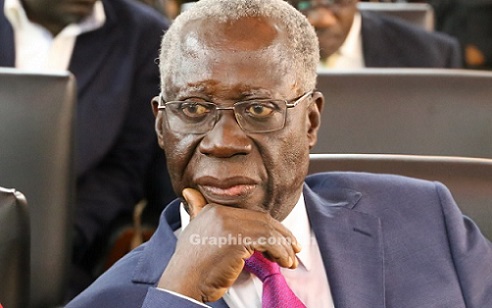
Allow IMF programme to run its course
It has been two years since Ghana made international headlines for the wrong reasons regarding the management of its public finances.
After exiting an economic stabilisation programme with the International Monetary Fund (IMF) in 2012, virtually no one expected Ghana to return to the multilateral donor for the same kind of support.
With oil production taking shape and annual gross domestic product (GDP) growth peaking at 14.4 per cent in 2011, the country was widely seen as a peerless example of the Africa rising story.
This was boosted by strong investment inflows, a stable currency, declining interest rates and inflation, as well as the cementing of the country’s all-envious stable sociopolitical environment.
These success stories set the stage for a strong economic takeoff in the years to come.
Sadly, however, that never materialised after fiscal indiscipline in the course of the 2012 general election shattered the previous gains. Strong expenditure by the government caused the 2011 fiscal deficit to jump to 11.5 per cent in 2012.
Debt levels and interest rates shot up, and the cost of credit started peaking, raising the cost of doing business.
Erratic electricity supply in 2013 and 2014 added to the woes to derail the few gains that had been made.
The government started what it called the home-grown policies to reverse the tide. But to help gain international credibility, the government, in April 2015, signed onto a three-year extended credit facility (ECF) programme with the IMF.
This set the stage for IMF-laced conditions in the country, key among them being the introduction of taxes, a net freeze on employment and a squeeze on public finances to help bring the deficit back on track.
While in opposition, the now governing New Patriotic Party (NPP) resisted the deal, describing it as a bitter pill pushed down the throats of citizens.
Consequently, when the party won last year’s general election, some of its key functionaries revealed plans to abrogate the deal and spare the country the conditions attached.
Although Mr Yaw Osafo-Maafo, one of the vehement critics of the IMF deal, has since moderated his hard stance (refer to Cover Story), the GRAPHIC BUSINESS believes that the country will be better off if the programme is allowed to run its full course.
As a fragile economy that thrives on investor sentiments, Ghana needs to keep its house in order to be able to gain the confidence of investors who are critical to our economic growth.
To us at the GRAPHIC BUSINESS, abrogating the programme, will only paint the country as one playing to the whims of politicians.
With concerns of debt levels, investor appetite and weak growth still lingering, the least the country can do is to allow the programme to run its full course.
With 2017 just some months away, the current administration will be gaining a lot of international goodwill, if it allows the programme to end as scheduled.
This way, development partners and investors will see the country in a more positive light to the benefit of the government and the economy as a whole.
